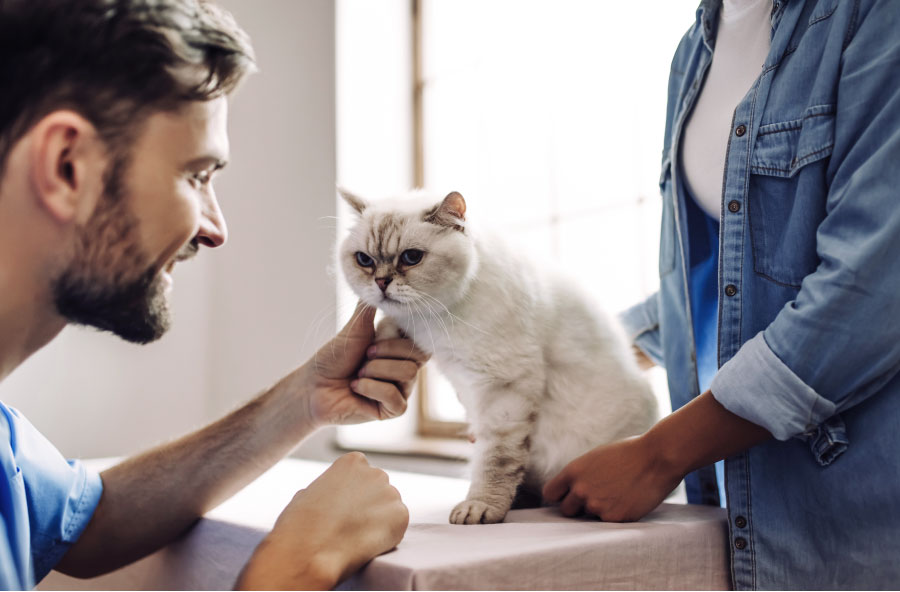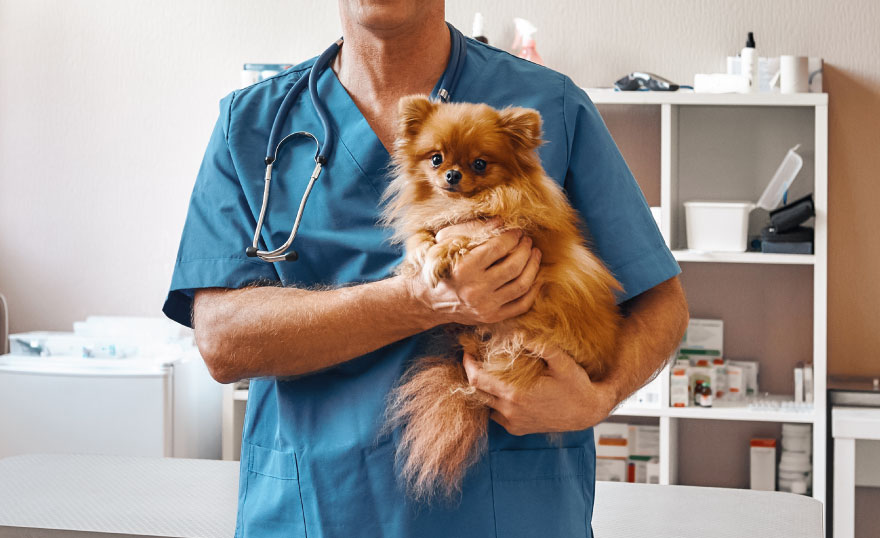How to avoid the dangers of over-vaccination (But still keep your pets safe from diseases)

By Dr Edward Bassingthwaighte, Holistic Veterinarian

Guess how much I vaccinate my own pets?
Not a whole lot. Both my dogs and my cats have only had their puppy or kitten vaccinations (in fact, one of my cats has not been vaccinated at all). This is my informed choice, according to the risk levels that my pets are exposed to. I’ll be explaining how you can make a well-informed choice for your animals when it comes to disease protection a little bit later in this article.
But first! I want to share my journey from a newly graduated vet who vaccinated everything in sight with absolutely no concern for the risks that vaccinations carry (and especially the risk that come from over-vaccinating) - to my understanding and practices now, which are very different.
It wasn’t until the mid 2010’s, after I started my first home visit veterinary practice in Townsville, that I could practice veterinary medicine how I wanted to. I was very interested in holistic approaches to medicine, and I started researching about vaccinations for pets.
I pretty quickly found that a vet (Dr. Rondald Shultz) in the USA had done a lot of research into the duration of immunity of the Modified Live Virus (MLV) vaccines (these are living viruses, but they have been weakened so they don’t cause disease). These MLV vaccines are the most commonly used ones for C3 (core vaccines for dogs) and F3 (core vaccines for cats). There are some links to his research at the bottom of this article.
There are still some killed vaccines - or killed viruses vaccines- available, but I warn you against using them (they can be purchased and administered without any need to see a vet). These killed vaccines contain adjuvants (extra chemicals designed to turbo charge the immune response, aka increase inflammation). In my experience, adjuvant containing vaccines are more likely to cause a vaccine injury than MLV vaccines.

Back to Dr. Shutlz’s research. In a nutshell, he found that the MLV C3 and F3 vaccines when administered to animals with a healthy immune system (the vast majority) who are older than 16 weeks of age, will mount an immune response that lasts for at least 3 years, more often 5-7 years, and in many cases lifelong!
Why do I say older than 16 weeks of age? That’s because puppies and kittens have maternal antibodies from the colostrum, the special first milk the mothers make. Colostrum contains antibodies from the mother, which are absorbed through the gut into the blood stream. These antibodies latch onto the vaccines, and so the body cannot respond to make their own antibodies. In about 30% of pups and kittens at 8 weeks old, the maternal antibodies are still present. About 5-10% at 12 weeks, then at 16 weeks we can know for sure that all the maternal antibodies will be gone.
This means that many pups and kittens will get vaccinations that aren’t actually doing anything. Some of the early ones may be interfered with by the maternal antibodies, then some of the later ones, the pups or kits will have mounted an immune response and so their antibodies will latch onto the vaccine, so then the body can’t respond to it.
Bottom line is, if you have a puppy or kitten vaccinated at or after 16 weeks of age, in nearly all cases they will then have a long lasting duration of immunity of at least 3 years, more likely of 5-7 years+. (Only a few very rare animals with immune disease will not mount an immune response and create antibodies.)
I stopped blindly revaccinating all the animals I saw every year, or every three years, and started titer testing (titer test is a simple blood test to measure antibody levels) after I found all of this out. Turns out when I started titer testing, I found most animals didn’t need to be re-vaccinated. I lost a lot of income when I did this - yearly and three yearly re-vaccination are a good money spinner, and this is one reason why many vet practices are reluctant to change.
Here’s how you can keep your pets as safe as possible…

Titer test before any re-vaccination after 16 weeks of age. If the antibody levels are showing to be accurate, then do not re-vaccinate. The majority of what vets market as ‘booster’ vaccinations are doing nothing to make the animals immunity stronger and are increasing the risk of vaccine injury.
If you’re not sure what to do with puppies and kittens, talk to a holistic vet! And (this is IMPORTANT) be very, very cautious about re-vaccinating if your animals have ever had any kind of reaction to a vaccination in the past.
If your vet does not have in house kits, they will want to send your titer away to an outside lab, which may be very expensive - as much as $3-400. If they quote you this price, invite them to order in the Biogal Vaccicheck in-house kits, which are FAR more affordable (around $60-$129 I would think is a fair price.
I see a lot of vaccine injuries- immune disease triggered, allergies starting or worsening, inflammatory bowel disease, never the same after a vaccination etc. To care for your pets, you need to give the minimum amount of vaccinations required. No more than that! The only way to do this is to always titer test before any re-vaccination.
C3 and F3 are core vaccines. There are non-core vaccines - for example Kennel cough or Leptospirosis. I tend to avoid these non-core vaccines unless they are needed for boarding pets (Kennel cough) or if there is a very high risk. And even then, I might think twice, because Lepto is a very reactive vaccine, with a poor duration of immunity. Usually less than a year.
I advise ceasing all vaccinations when pets get older - If they are looking old and grey and rickety, then their vitality and wellbeing is fading, and a vaccine will be more likely to do harm. I have seen a number of older dogs fade out very quickly after a re-vaccination that they probably didn’t even need, as they would have had strong antibody levels!
So- there you have it. Minimal vaccination for adequate protection. Always titer test to see if re-vaccination is needed! Avoid revaccination in all animals with a history of any vaccination reaction and be very cautious about re-vaccinating elderly pets.
About the Author - Dr Edward Bassingthwaighte.

Dr Edward Bassingthwaighte is a holistic veterinarian, and a world-leading expert in silent pain in pets. Dr Edward is passionate about fresh raw whole foods for dogs. He is the founder of the Whole Energy Body Balance method- a profoundly healing bodywork modality for pet parents and pet wellness professionals to relieve silent pain, anxiety and trauma in pets. Join Dr Edward's free masterclass on silent pain in pets here.
If you liked this article, sign up to our Big Dog Fam Mail to receive more great pet health and happiness advice.
If you liked this article, please share on Facebook.
Links to research:
From https://www.sciencedirect.com/science/article/abs/pii/S0021997509003338
“… even a single dose of modified live virus (MLV) canine core vaccines (against CDV, cav-2 and cpv-2) or MLV feline core vaccines (against feline parvovirus [FPV], feline calicivirus [FCV] and feline herpesvirus [FHV]), when administered at 16 weeks or older, could provide long-term immunity in a very high percentage of animals, while also increasing herd immunity.”
From https://www.sciencedirect.com/science/article/pii/S0378113506001489
“The results of this study confirmed that dogs vaccinated subcutaneously with a commercially available multivalent vaccine containing modified-live canine distemper virus, canine adenovirus type 2, canine parvovirus type 2b, and canine parainfluenza virus antigens were protected against sequential experimental challenge 55 to 57 months after initial vaccination given at 7 to 8 weeks of age.”
